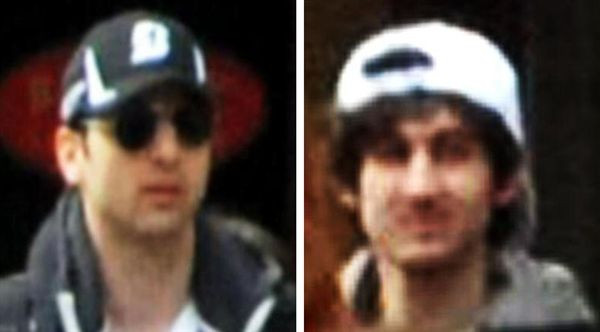
The FBI didn't tell the Boston Police Department or the state police that they had previously investigated suspected Boston terrorist Tamerlan Tsarnaev while the agencies were in communication in the days following the April 15 marathon bombing, the city's chief said.
Chief Edward Davis of the Boston PD told Chairman Rep. Michael McCaul, R-Texas, at a hearing before the House Homeland Security Committee, that he was unaware of an investigation of Tsarnaev initiated at the request of an anonymous country suspected to be Russia.
Tsarnaev and his brother Dzhokhar are suspected of setting off bombs at the finish line of the Boston marathon, killing three and injuring more than 170. Tamerlan reportedly visited his homeland of Chechnya for six months in 2011, where some have said he was radicalized by terrorist elements.
Brian Ross of ABC News reported that the Tsarnaev's cousin, Magomed Kartashov, possibly helped radicalize the older Tsarnaev, who died in a gunfight with police soon after the manhunt for the Tsarnaevs commenced. Kartashov, according to Ross, may be the founder of The Union of the Just, a Sharia law-based organization that reportedly holds anti-American sentiment.
Davis was quick to make it known that he would not be jumping to conclusions as to who may have been at the root of the crucial mishap in communication or why it happened. "I'm not ready to vilify anyone at this point in time," Davis said, "...I'm looking forward to the review of what occurred so we can get to the bottom of a lot of different questions."
McCaul noted that the lack of communication in this way may be part of an "emerging narrative" by Washington that "downplays the spread of the global jihadist movement."
"From the attack at Fort Hood [by Nidal Malik Hasan in 2009] to the tragedy at Benghazi, the Boston bombings are our most recent reminder that we must call terrorism really for what it is, in order to confront it."
Former Secretary of State Hillary Rodham Clinton and UN Ambassador Susan Rice have been under fire this week on allegations that they botched the response to the raid on the American consulate in Benghazi, Libya that left Ambassador Chris Stevens and three others dead.
In Congressional testimony, Gregory Hicks, the former deputy chief at the United States Embassy in Tripoli, said that Clinton knew of the attack at 2 a.m. Benghazi time (8 p.m. in Washington) the night of the attack. He said he then received "intimidating" telephone calls from Cheryl Mills, a Clinton staffer.
In his own testimony Thursday, Edward Davis told McCaul's committee that "soft targets" must be better secured from future attacks, referring to public events like the marathon.
© 2025 Latin Times. All rights reserved. Do not reproduce without permission.



